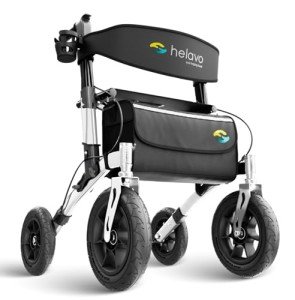The Reason Why Adding A Medical Walker To Your Life Will Make All The The Difference
A Comprehensive Guide to Medical Walkers: Enhancing Mobility and Independence
In the realm of healthcare, mobility plays an essential function in rehabilitation and total wellness, particularly for seniors and those recovering from injuries. Among the myriad of mobility aids readily available today, medical walkers stick out as flexible tools that assist in motion and boost independence. This post will look into the types, advantages, factors to consider, and FAQs concerning medical walkers.
What is a Medical Walker?
A medical walker, frequently referred to as a walking frame, is a supportive device created to help individuals with mobility obstacles walk with greater stability and ease. Walkers supply a wider base of support compared to walking sticks and crutches, making them perfect for those with balance concerns or limited strength.
Types of Medical Walkers
Type
Description
Features
Standard Walker
A basic four-legged frame without wheels, utilized mainly for stability.
Lightweight, strong, adjustable height, ideal for indoor and outdoor use.
Wheeled Walker (Rollator)
A walker with wheels on the front legs, permitting easier movement.
Geared up with hand brakes, a seat for resting, and storage alternatives.
Hemi Walker
A walker developed for individuals who can utilize one arm and require support.
Lightweight and compact, features a curved handle for easier gripping.
Bariatric Walker
Designed for larger individuals, providing increased weight capacity and stability.
Improved resilience, larger frame, and helpful features for heavier users.
Knee Walker
An unique option for those with leg injuries, permitting them to rest the knee.
A platform to support the injured leg, steering capabilities, and brakes.
Benefits of Using a Medical Walker
- Enhanced Stability: Walkers provide extra points of contact with the ground, resulting in a more stable walking experience.
- Increased Independence: Users can browse their environment without requiring assistance, improving self-confidence and self-reliance.
- Enhanced Safety: The threat of falls is significantly minimized, as walkers provide support to those with balance problems.
- Versatile Usage: Many walkers are developed for both indoor and outdoor usage, adjusting to different terrains.
- Assistance throughout Rehabilitation: Medical walkers are vital throughout healing from surgical treatments, injuries, or health problems.
Factors to consider When Choosing a Medical Walker
When selecting a medical walker, numerous elements need to be born in mind:
Consideration
Description
User's Condition
Evaluate the person's strength, coordination, and specific requirements.
Devices Weight
Make sure the walker is lightweight enough for easy handling but durable enough for support.
Adjustable Height
The walker must be adjustable to fit the user's height for ideal comfort and performance.
Hand Grip Comfort
Check that the grips are comfortable to hold for extended periods.
Weight Capacity
Make sure the walker can support the user's weight, particularly for bariatric walkers.
Storage Needs
Figure out if extra features like baskets or trays are essential for bring products.
Frequently Asked Questions (FAQs)
*How do I figure out if I require a walker?If you experience difficulty in maintaining balance, feel unsteady walking, or require assistance on flat surface areas or inclines, it's recommended to seek advice from a health care expert for an assessment. Can I utilize a walker outdoors?Yes, specially designed walkers with bigger wheels(wheeled walkers or rollators)are ideal for outdoor usage and can handle different surfaces successfully. How do I maintain my walker?Regularly check the walker for loose parts, guarantee wheels are oiled if
applicable, and tidy it as needed. Speak with
the manufacturer's standards for particular maintenance instructions. Are walkers covered by insurance?Many insurance coverage plans deal protection for walkers, but it is necessary to talk to your service provider to understand your particular policyinformation. Reliable Walker with physical therapy?Yes, using
a walker can support rehab efforts by providing stability during exercises advised by physio therapists. Medical walkers are vital tools that notjust assist in motion and self-reliance however also considerably improve the quality of life for individuals dealing with mobility obstacles. With various types readily available, choosing the best walker is **
crucial to fulfilling private requirements. The journey to gaining back mobility can be complicated, but with the best devices and support, individuals can get rid of barriers and recover their independence. By understanding the kinds of walkers, their benefits, and necessary factors to consider, users can make educated choices— resulting in a much safer, more confident way of moving through life. Whether it's a rollator for outdoor experiences or a basic walker for indoor navigation, the best walker can open doors to newly found liberty and enhancement in day-to-day life. 